Belgrade-Priština talks agenda still unknown
Head of Belgrade's Kosovo talks team Borko Stefanović says the topics for the negotiations were "still under review".
Monday, 28.02.2011.
14:58

Head of Belgrade's Kosovo talks team Borko Stefanovic says the topics for the negotiations were "still under review". But Serbia's MFA political director said that he expected the dialogue to yield results quickly after its start. Belgrade-Pristina talks agenda still unknown "The most important thing for us are the problems Serbs in Kosovo face and we shall try to settle those immediately, while the sovereignty issues will be discussed in the later stages," Stefanovic noted, speaking at a Tanjug roundtable, entitled "Ahead of the Belgrade-Pristina talks". The concept of the talks will be completely different from the previous negotiations between Belgrade and Pristina, because those talks had only one topic, which in turn had the potential to make either side abandon the dialogue. "We have not entered the process to play a game of poker and have a winner and a loser, but to find answers to the people's problems," he pointed out. The negotiations should not be approached with suspicions of backstage dealings and deception, Stefanovic argued. According to him, the EU, as the mediator, will have a status-neutral role and no ultimatums will be imposed on either side. The Belgrade team will adhere to the Constitution and try to use a constructive approach to improve the lives of Kosovo residents, which should not be interpreted as willingness to make concessions, Stefanovic noted. He expects certain parts of both communities to condemn the negotiations, but nevertheless feels that they are needed for the benefit of the people and both Serbs' and Kosovo Albanians' European future. Both sides tend to look back to the past, but the talks are there to help them overcome that, he concluded. The negotiations will be a sobering event for both sides and they should refrain from past rhetoric, he added. "Belgrade has learned its lessons from various bad experiences in the past, and that is our message to Pristina, learn your lessons, show maturity," he stressed. Pristina could show its democratic maturity by prosecuting those responsible for war crimes against ethnic non-Albanians, he explained. The issue of the predominantly Serb populated northern Kosovo will definitely appear on the agenda, but the solution cannot be the same as in other parts of Kosovo, since the Serb population in the north is the most united. It is wrong to think that all of the problems there could be settled over night by establishing central government institutions, Stefanovic stated. Borko Stefanovic (Tanjug, file) "What will Serbs get" Opposition Serb Progressive Party (SNS) deputy leader Aleksandar Vucic also took part at the roundtable to say he was "in favor of problems in Kosovo being solved in a democratic manner, through dialogue with the legitimate representatives of Pristina", but that it was "important for Serbia to know what it will get out of the dialogue". "We have no problem with dialogue, but we do have one with the lack of ideas and a plan," Vucic stated. He said that agreement is needed among all players on the Serbian political scene as to Serbia's plan, but that, he said, is missing. "We want to know what is the minimum of Serbian interests that must be respected, and we have not reached agreement about this. All will come down to small concessions we will be making, and without helping the Kosovo Serbs," Vucic added. "We need to know what we will be getting, as one side in the negotiations, what the Serbs will get apart from cell phone service and license plates," Vucic believes. "This should have been discussed in Serbia," said the SNS deputy leader, pointing out that Serbia has not had a plan for Kosovo for a long time and is in a difficult position, but added the people should not be lied to. Responding to Kosovo analyst and coordinator for northern Kosovo Ilber Hisa, he said it was true that Kosovo has been recognized by 76 countries, but has not been recognized by another 116, that there are "different realities in Kosovo, and that Pristina should not start from a superior position". "That is not a good argument for dialogue," Vucic said adding that it is not realistic for Belgrade to accept only what Pristina wants. When Hisa asked "what exactly Belgrade wants", Vucic responded: "We want the Serbian Constitution, which defines the territory of Serbia, to be respected. Within that framework, the government should show some flexibility and be open to some concessions, but concessions also need to be made for Serbs." "You will always have the support of some parties in Belgrade, but you will not have the support of four fifths of our people to steal Kosovo from our country. We do want dialogue, but just as Albanians do not want to give up northern Kosovo, we will not give up Kosovo," Vucic concluded his response to Hisa.
Belgrade-Priština talks agenda still unknown
"The most important thing for us are the problems Serbs in Kosovo face and we shall try to settle those immediately, while the sovereignty issues will be discussed in the later stages," Stefanović noted, speaking at a Tanjug roundtable, entitled "Ahead of the Belgrade-Priština talks".The concept of the talks will be completely different from the previous negotiations between Belgrade and Priština, because those talks had only one topic, which in turn had the potential to make either side abandon the dialogue.
"We have not entered the process to play a game of poker and have a winner and a loser, but to find answers to the people's problems," he pointed out. The negotiations should not be approached with suspicions of backstage dealings and deception, Stefanović argued.
According to him, the EU, as the mediator, will have a status-neutral role and no ultimatums will be imposed on either side.
The Belgrade team will adhere to the Constitution and try to use a constructive approach to improve the lives of Kosovo residents, which should not be interpreted as willingness to make concessions, Stefanović noted.
He expects certain parts of both communities to condemn the negotiations, but nevertheless feels that they are needed for the benefit of the people and both Serbs' and Kosovo Albanians' European future.
Both sides tend to look back to the past, but the talks are there to help them overcome that, he concluded.
The negotiations will be a sobering event for both sides and they should refrain from past rhetoric, he added.
"Belgrade has learned its lessons from various bad experiences in the past, and that is our message to Priština, learn your lessons, show maturity," he stressed. Priština could show its democratic maturity by prosecuting those responsible for war crimes against ethnic non-Albanians, he explained.
The issue of the predominantly Serb populated northern Kosovo will definitely appear on the agenda, but the solution cannot be the same as in other parts of Kosovo, since the Serb population in the north is the most united. It is wrong to think that all of the problems there could be settled over night by establishing central government institutions, Stefanović stated.
"What will Serbs get"
Opposition Serb Progressive Party (SNS) deputy leader Aleksandar Vučić also took part at the roundtable to say he was "in favor of problems in Kosovo being solved in a democratic manner, through dialogue with the legitimate representatives of Priština", but that it was "important for Serbia to know what it will get out of the dialogue"."We have no problem with dialogue, but we do have one with the lack of ideas and a plan," Vučić stated.
He said that agreement is needed among all players on the Serbian political scene as to Serbia's plan, but that, he said, is missing.
"We want to know what is the minimum of Serbian interests that must be respected, and we have not reached agreement about this. All will come down to small concessions we will be making, and without helping the Kosovo Serbs," Vučić added.
"We need to know what we will be getting, as one side in the negotiations, what the Serbs will get apart from cell phone service and license plates," Vučić believes.
"This should have been discussed in Serbia," said the SNS deputy leader, pointing out that Serbia has not had a plan for Kosovo for a long time and is in a difficult position, but added the people should not be lied to.
Responding to Kosovo analyst and coordinator for northern Kosovo Ilber Hisa, he said it was true that Kosovo has been recognized by 76 countries, but has not been recognized by another 116, that there are "different realities in Kosovo, and that Priština should not start from a superior position".
"That is not a good argument for dialogue," Vučić said adding that it is not realistic for Belgrade to accept only what Priština wants.
When Hisa asked "what exactly Belgrade wants", Vučić responded:
"We want the Serbian Constitution, which defines the territory of Serbia, to be respected. Within that framework, the government should show some flexibility and be open to some concessions, but concessions also need to be made for Serbs."
"You will always have the support of some parties in Belgrade, but you will not have the support of four fifths of our people to steal Kosovo from our country. We do want dialogue, but just as Albanians do not want to give up northern Kosovo, we will not give up Kosovo," Vučić concluded his response to Hisa.










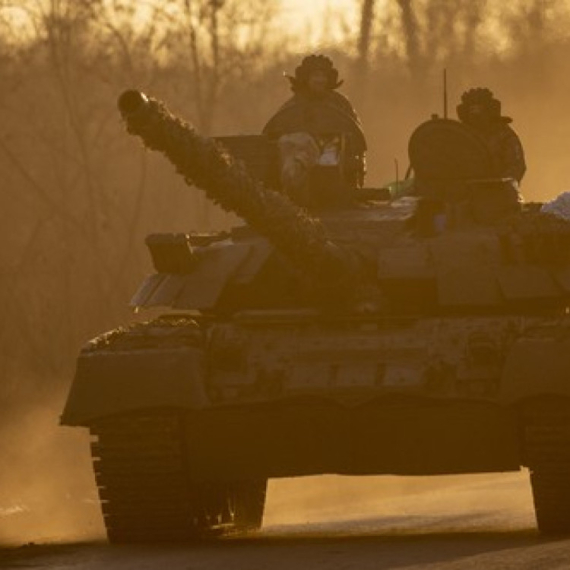
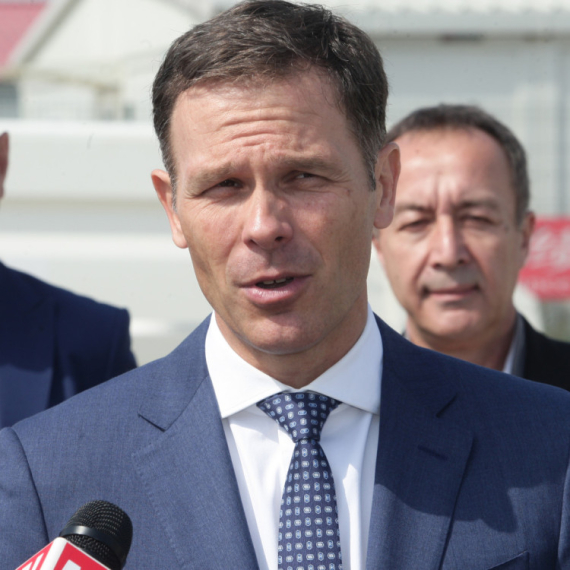

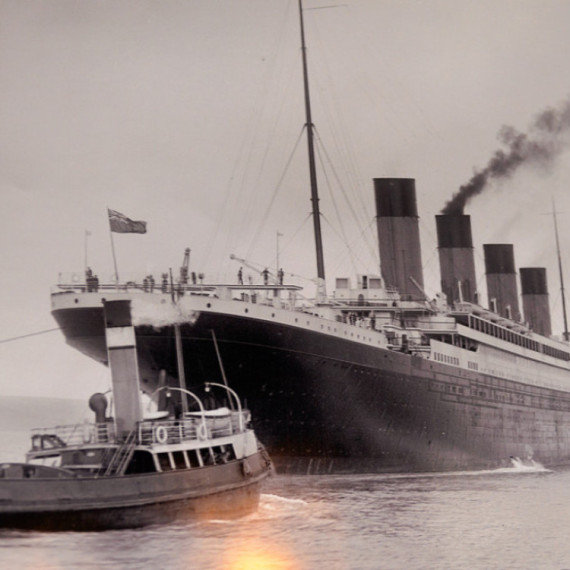

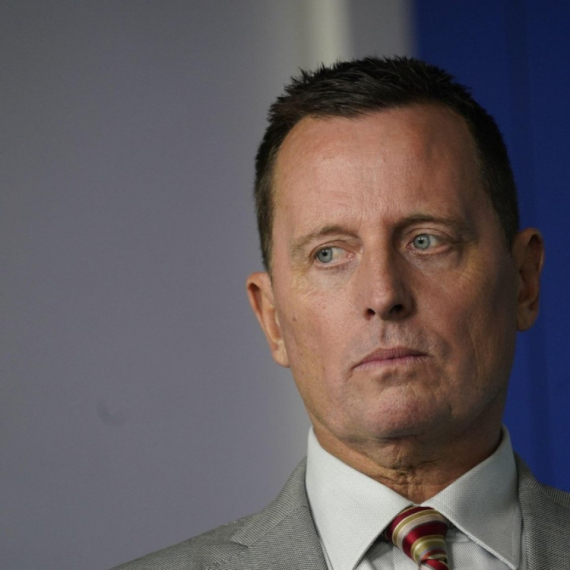
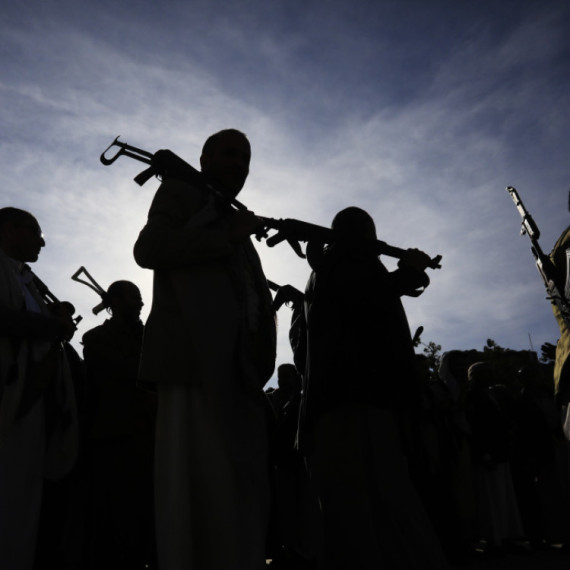
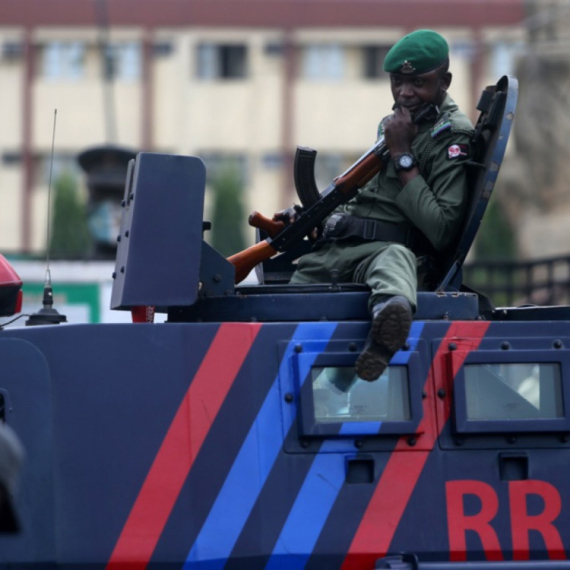


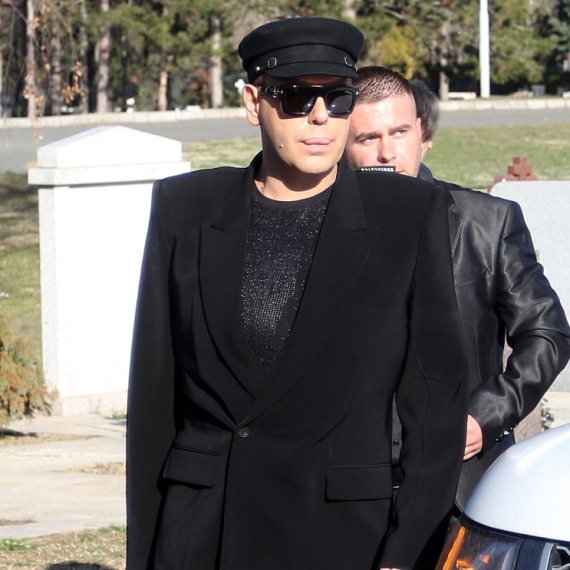




























Komentari 11
Pogledaj komentare